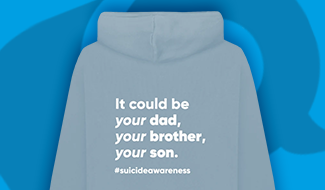Who Are Children’s Guardians?
The name “Children’s Guardian” is a confusing one. It is often confused as a foster carer or some other form of alternative carer. This could not be further from the truth. A Children’s Guardian is employed by CAFCASS (Children and Family Court Advisory and Support Service). They are specialist Social Workers who help families in court proceedings.
What Does A Children’s Guardian Do?
When the adults in a child’s life cannot agree with whom a child should live and how often the child should see their other parent, it often falls to the court to make that decision. Whilst in the majority of cases this can be resolved through mediation, as a last resort a judge will make a decision if either parent, or other adult, applies to the court for an order pursuant to section 8 Children Act 1989. These are now known as Child Arrangements Orders, setting out where a child lives and the way in which they spend time with other people. These used to be called Residence and Contact Orders.
During court proceedings the court will often direct a welfare report, also known as a section 7 report. Unless your family is, or has been, known to Social Services, a Children’s Guardian will undertake that report. They will report to the court not only on the parents views, but also the wishes and feelings of the child and they will, importantly, make a recommendation to the court as to what they think is in the best interests of the child.
There are occasions when the court considers that the appointment of a Children’s Guardian under Rule 16.4 Family Procedure Rules 2010 would be of assistance, usually where the facts have become complex and serious and there is no resolution or compromise in sight; or when an older child is opposed to the recommendations being made by the Children’s Guardian. This requires the court to make the children parties to the proceedings. The Children’s Guardian will also appoint a solicitor to represent the child.
The appointment of a Children’s Guardian means that the child will have an independent voice in court. The Children’s Guardian will want to meet the child, often away from the adults to allow the child to speak freely. The Children’s Guardian will make recommendations to the court as to what he or she thinks is in the best interests of the child; sometimes this is not always in accordance with the child’s wishes and feelings as that is just one factor that the court must take into account when making decisions about children. When the Children’s Guardian makes a recommendation to the court, and when the court makes a decision, the welfare of the child will be paramount and they will be applying the welfare checklist set out in section 1 Children Act 1989 when reaching those conclusions.
Who Is The Children’s Solicitor?
When a child is made a party to Court proceedings and a Children’s Guardian is appointed, the Children’s Guardian will go on to appoint the child a solicitor. That solicitor will be a member of the Children Panel and experienced in representing children through their Children’s Guardian.
The solicitor’s fees will usually be covered by legal aid.
The solicitor’s role is to represent the child in court. The solicitor will take their instructions from the Children’s Guardian and not from the parents.
It may be appropriate for the solicitor to meet the child, but this will depend on the age of the child and whether the child has expressed a wish to meet the solicitor.
In some circumstances it may be appropriate for the child to meet the judge who is going to be making the decisions to express their wishes and feelings. The child’s solicitor will arrange this and accompany them. Whatever the child says to the judge is not considered to be evidence. The judge will also make sure that the child understands that what is said is not a secret – the parties will be made aware of what the child has said. The child will also have an opportunity to ask the judge questions.
What If The Child Does Not Agree With The Children’s Guardian?
Sometimes what the Children’s Guardian is recommending to the court is not in accordance with the child’s expressed wishes and feelings. When this happens the child’s solicitor will need to assess that child’s competency and understanding of the proceedings to decide whether the child can instruct a solicitor independently of the Children’s Guardian. Age is an important factor when making this decision but is not the overriding factor – emotional intelligence and maturity is also considered. If the solicitor concludes that the child is competent, he or she will take instructions from the child directly. The Children’s Guardian will continue to play a role and will continue to make recommendations to the court either directly themselves or through another solicitor.
Other Resources
You may find article in the ‘Court And Fighting For The Children’ useful.
The Recommended Books section has lots of useful resources for parents and children going through separation.
The Useful Links section has a comprehensive list of other organisations that maybe able to help you.
Posted on December 15, 2020














